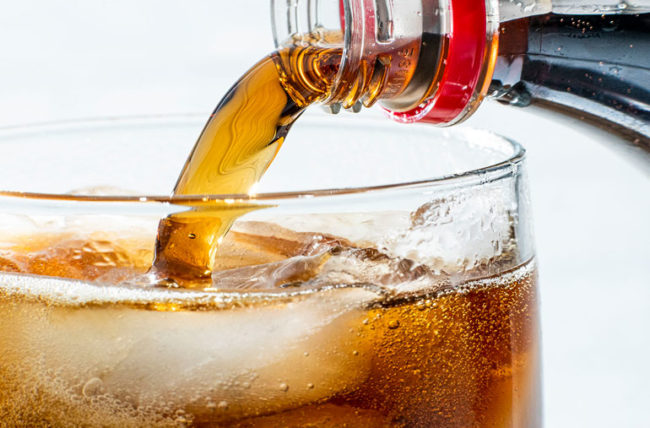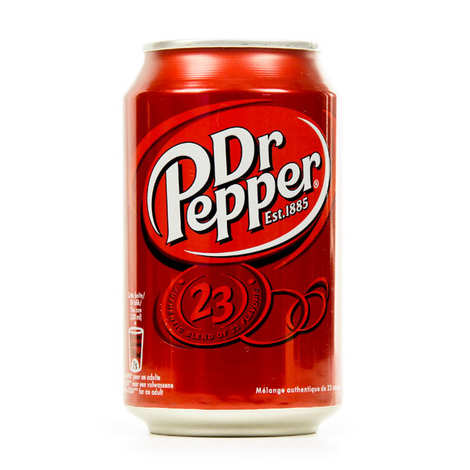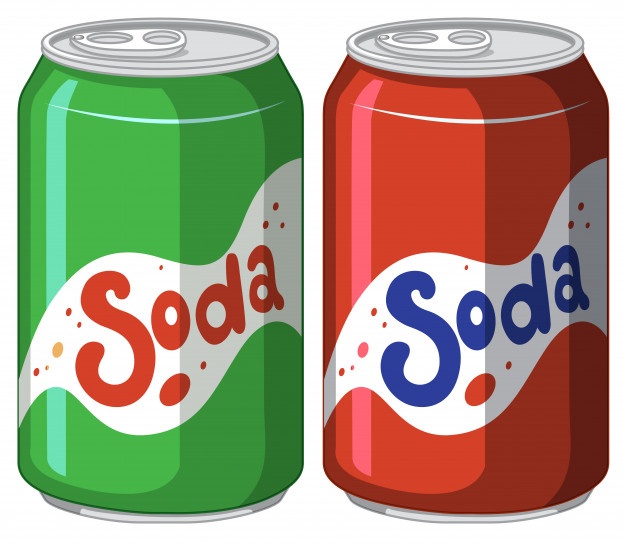Sodas come in various kinds- caffeinated, non-caffeinated, regular, diet, cola, lemon, and several other confusing ones. As much as we love than, it’s not hard to believe their unhealthy nature. While soda is unhealthy for us, it can be fatal for cats. While a lick or two might not make much of a difference, accidental ingestion in large quantity can prove to be harmful.
A typical bottle of soda is produced by dissolving a prepared syrup containing a significant amount of caffeine, artificial sweeteners, carbon dioxide, and several acids in water, none of which is either healthy or neutral for cats. Most of the ingredients are even toxic for us in adequate quantity.
So, can your cat drink soda? The simple answer is a big fat NO! but you must’ve figured it out already. But, while you are at it, let me explain all other questions relating to cats and sodas in this article.
1. Can Your Cat Drink Soda?

You don’t need to strain yourself if your cat has licked a drop or two of your beloved soda from the floor as it’s very unlikely that your cat will fall ill with that little consumption. accidental ingestions keep happening all the time. Luckily cats are smart creatures, they’re very intuitive and likely to not touch the soda even if presented deliberately.
Firstly, there’s no benefit for your cat to drink soda. They don’t even have the tastebuds that distinguish sweetness – they can’t taste sweetness. Even by our standards, soda is not healthy at all. But we are social creatures and drink soda occasionally being caught in the marketing trap. But,t that’s not the case for cats. They don’t care how that particular soda tastes, it’s all same to them. Soda is unhealthy for cats because –
1. caffeine:
Just like alcohol, under no circumstances, any caffeinated drinks should enter a cat’s digestive system. Caffeine intoxication can cause increased heart rate, hyperactivity, major organ damage, and nervous system breakdown in cats.
2. High-Fructose:
High levels of sugar present in sodas could present a problem to your cat. Cats need a relatively stable blood sugar level to survive. Feline diabetes can prove to be fatal in some severe cases.
While sugar is not a nutritional requirement for cats, having a high dose of sugar can cause health issues and raise the risk of death.
Considering cats only require a few hundred calories a day, soda seems to be a long game. Excess sugar in the daily diet will also cause weight gain and diabetes issues.
3. Acid:
The majority of sodas contain acids – mostly citric and phosphoric acid. When consumed, they can wreak havoc on your cat’s digestive system. The immediate effects include distress and discomfort, but in the long term association with soda, cats can harm their stomach and teeth.
With any amount of research, it’s never justified or ethical to risk your cat’s life to feed any amount of soda.
2. What Could Happen to Your Cat if Drank Soda?

If your cat drank too much soda, it might show some symptoms of caffeine intoxication, such as:
- Hyperactivity
- Diarrhea and vomiting
- Increased heart rate
- lethargy
If you have doubt that your cat might have consumed soda, inspect closely for any symptoms mentioned above, the symptoms can occur between 30 minutes to 12 hours after ingestion; and if they do show any – any symptom at all – contact your vet explaining the situation immediately.
I’m being hyperactive on this part because, in some severe cases of caffeine intoxication, your cat might experience seizures and even death. Major organs like the lung, kidney, liver, heart of cats are very vulnerable to caffeine intoxication and can be permanently damaged.
Early intervention is the key to success in case of caffeine intoxication, your vat might pump the caffeine out by inducing vomiting. Intravenous fluids administrated by your vet can also help with dehydration and kidney failure symptoms. Medications may require to arrest seizures, muscle tremors, and irregular blood pressure.
3. Can Cats Drink Diet Soda:
Again no, anything that contains caffeine and a high amount of sugar is quite harmful to cats. You should never consider making them drink soda in your right mind. Soda is not like flour, at least flour doesn’t induce harm to the cats. Caffeine present in soda can cause very severe troubles for you and your cat.
Diet soda is still soda with artificial sweeteners like xylitol and aspartame. Both of which can cause diarrhea and stomachache in cats. While all this seems like a good option for cats, but cats don’t need even a single bit of sugar or caffeine in their diet, just like you. Forcing them to drink soda on a daily basis is not at all advised.
4. What Can You Give Your Cat if not Soda:
Pure, clean water should be the best drink that you can cater to your cat. It’s the healthiest option available. Most of us get tired of water and crave some other drinks while having a change of diet. We assume the same for cats.
While I appreciate your concern, cats don’t need anything to hydrate with apart from water. They are carnivores, and if blood is not an option, you should stick with water and water only.
If you are that inclined to see them drink something else, try the gravy from their cat food or special cat milk, exclusively manufactured for cats by keeping the lactose part out of it. But don’t feed them regular milk, cats are lactose intolerant.
The Bottom Line:
Common sense tells us that if it’s not healthy for us, it must not be healthy for cats. Carbonated drinks or sodas are in general quite harmful to humans and cats alike. The added sweetness, flavor, and caffeine should never enter your cat’s digestive tract.
If your cat ever shows any symptoms relating to the caffeine of sugar intoxication, you should contact your vet immediately and not wait for the symptoms to die down. The carbonated nature of sodas causes cats to be bloated, which is very different from us. Their stomach is not as stretchy as ours is, their bloating is way more fatal than ours are. If you were planning to give your cat soda, my advice is to drop the plan and consider giving the water instead.
